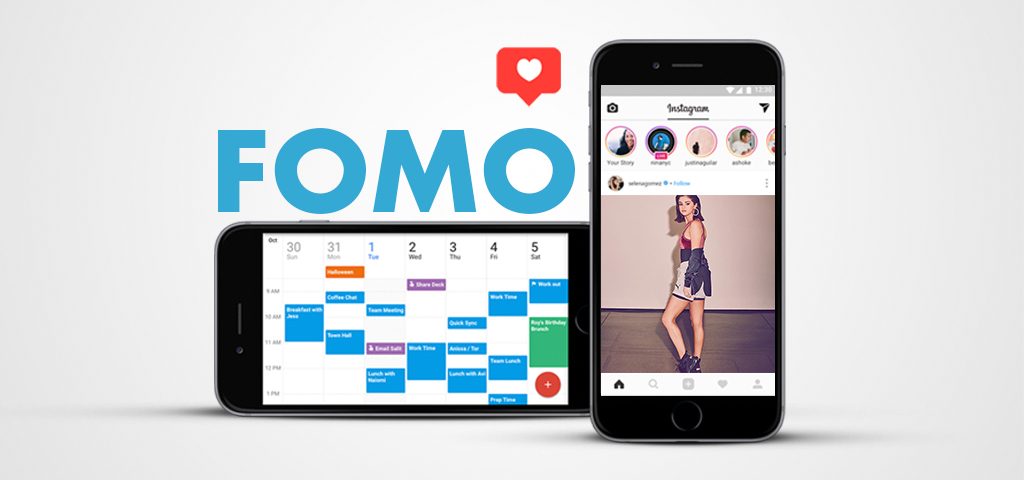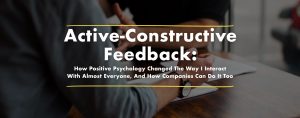“No one can make you feel inferior without your consent.”
- Eleanor Roosevelt
F This.
In fact, as the FOMO origin story, and my role in its creation, has attracted interest, I’ve come to learn that my part in this improbable saga was actually somewhat inevitable. In a sense, FOMO is part of my DNA. In his paper “Following the Joneses: FOMO and conspicuous sociality,” Prof. Joseph Reagle traces FOMO back to an early 20th century comic strip called “Keeping up with the Joneses,” about a social climber named Aloysius who struggles to match the exploits of his neighbors, the Joneses. There’s a rather stunning coincidence that binds Aloysius and me. His full name was Aloysius P. McGinis. So, while we’re separated by one “n,” it’s clear that Aloysius and I have a lot in common. He was the first McGin(n)is to have FOMO, but he certainly wasn’t the last.
So, given that FOMO has been around for longer than you might have realized, I’d like to introduce you to the idea of seeing FOMO as a natural consequence of the human experience that has become an epidemic thanks to the hyperconnected nature of our modern era.
Where Does FOMO Come From?
Everyone knows about FOMO, but what is the opposite of the fear of missing out? One idea I’ve been thinking about for a long time is the concept of Relatedness. This idea comes from a psychological model called Self Determination Theory, which represents a way of thinking about humans as social animals.
Even if you’re an introvert, healthy humans need to feel connected to a community of some kind- a literal neighborhood, a subculture, a national identity, an extended family, a sports team, or a YouTube celebrity fanbase, You get it. Swap in the word “tribe,” and you’ll get a sense of how essential the idea of belonging is to a human.
We humans do pretty well alone, as long as we’re smart, strong, healthy, and well-prepared. But very few people hit the jackpot and enjoy all of those qualities and blessings at the same time. Thus, if we want to do big things and succeed over the long run, we need to cooperate.
In order to cooperate, humans have to:
a) trust each other,
b) find ways to communicate, and
These are skills we all learn- social skills- and we figure out many of them naturally, without noticing, as we grow up. Some of them have to be taught, and sometimes, when we encounter a new situation, like a job at a new company or a new project with a new team, we have to learn them all over again. When we don’t do this well, it feels awkward, and affects our ability to get things done.
Stack Overflow And You
Stack overflow is fancy programmer speech for “too much at once.” FOMO begins when our brains get stack overflow- too much information from too many sources when we’re just trying to get from Point A to Point B in our everyday lives. When we need this much information to make the right choice, THIS MUCH can drive us to make struggle with decisions and get distracted.
While our brains are amazing, they’re designed to operate in a very different setting from the one we live in today. Think about the following: Famed scientist Robin Dunbar studied a bunch of primates, humans included, and worked out that we’re designed to have social relationships with a maximum of about 150 people. This figure - know as Dunbar’s number - has become a rule of thumb for human relations.
If you’re thinking that 150 sounds like a pretty big number of people with whom to maintain social relationships, step back and do the math. How many people are in your family? How many people are at your office? How many people do you run into every day? Now think about how many Facebook, LinkedIn, Twitter, WhatsApp, iMessage, Snapchat, and Instagram connections you maintain and add in all of the people from your World of Warcraft clan and your Game of Thrones Reddit thread. Ugh. If I add up all of my connections, I’m well over 20,000! Yikes. Thanks to technology and social networking tools, we now regularly push our social universe beyond our brain’s ability to balance, compare, and accurately interpret all the connections we have. The consequence, my friends, is FOMO.
So We’re F’ed.
We may not be able to fundamentally change the way our society is currently organized (although, remember, it wasn’t always this way, so we can choose how our society looks if enough of us agree on something). We also may not be able to throw away our devices, and a lot of us just can’t #quitfacebook. Still, we are sentient beings armed with smarts and free will, and we are the ones in final control of what we let into our brains and our lives and what we do with all of that information.
So, how can you apply this really long psychology and anthropology lesson to beating FOMO? If you’ve been a regular reader, you’ve already got some tools to spot FOMO (and please, stay tuned for more!). When you feel pangs of FOMO, like you’re being left behind by the tribe, being voted off the island, or trailing behind the hunting party, try asking:
- Who is in my tribe- who, besides myself, does my situation affect? Because we’ve got a lot more than 150 people in our personal universe, this answer will change from day to day, even from decision to decision, but there will probably be a go-to inner circle for most decisions. That inner circle could be your family, who might depend on your income, your love, and your mental and physical health; it could be the stakeholders of a decision, the people who have put their resources, reputation, and time on the line. Sometimes, it’s just you. You will always be included in this tribe, but you must determine who else is standing alongside you.
- Is your FOMO coming from somewhere that meaningfully affects your tribe? Spoiler alert: there are a few billion people in the world, and a lot of them have things you wish you had and do things you think you should be doing because they seem worthy of emulating. They are not all relevant to you, and are not all part of your tribe- at least, not all at once. Remember that when you feel FOMO, your most basic self is worried about being left behind by what you perceive to be your tribe. This is not the same as wanting to succeed. If your competition- a competing brand or a FB “friend” that constantly shows off beachside vistas and bespoke outfits- is what’s causing your FOMO, this isn’t a worthy source of motivation. Reduce the situation to the information it contains- someone’s implementing a new development process, someone’s showing off a new watch- and ask yourself if you felt FOMO before you inadvertently let this person into your tribe. If the answer is “no,” kick ‘em off the island.
- Be real with yourself about the costs of chasing your FOMO. Would getting a new car just like your “friend” require you to give up a job you love to work 18 hours a day doing something you hate? Would going on that big vacation actually be more stressful than relaxing? I actually like to ask myself this question question twice- once when FOMO hits, and once again later on when I’m slightly more chill - the next morning, after a jog or - best of all, right after a session of yoga or meditation - so that I know my decision-making isn’t guided by a rush of FOMO hormones to my brain. Sometimes, the answer is still “yes,” but you’ll know it’s a “yes” based on a rational, honest analysis. If the answer is “no”- congratulations- you’ve said “F off” to a FOMO-driven decision that you’d have regretted later. That’s when you get to enjoy the other F word: Freedom.




